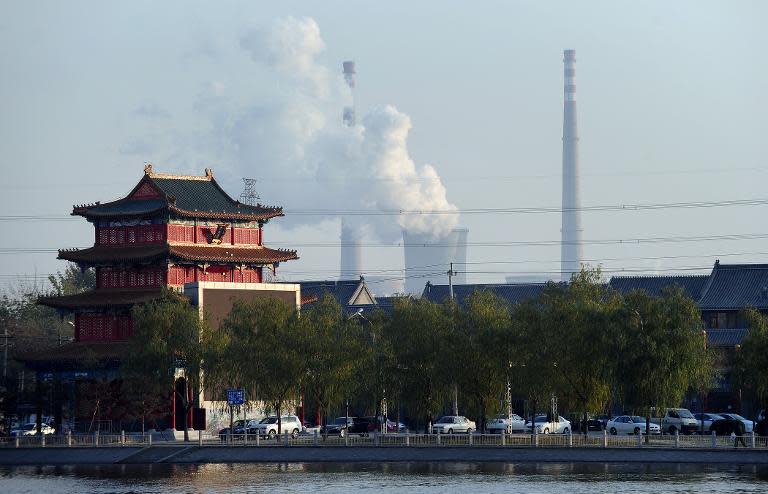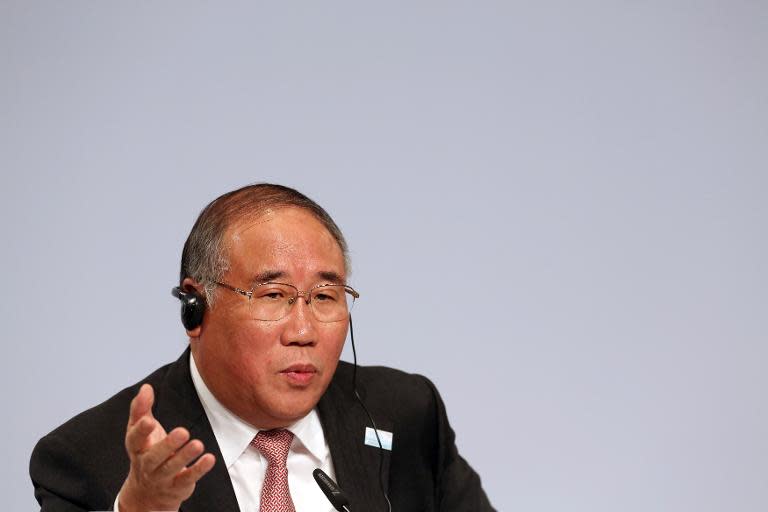China climate negotiator defends flexible carbon target
China's top climate change negotiator on Friday defended the vagueness of Beijing's target to peak carbon emissions "around 2030", suggesting developed nations may need to make more ambitious cuts. China, the world's biggest emitter of carbon dioxide which scientists say causes global warming, has resisted pledging to cut emissions but this week announced a rough date by which it aims to stop them rising. "The state of our economy in 2030 is still uncertain, so as a responsible country we also need to make responsible targets which we can be sure to meet," Xie Zhenhua, vice chairman of China's powerful National Development and Reform Commission, told reporters in Beijing. Xie added that the target, announced on Wednesday during a visit by US President Barack Obama, was not yet legally binding and would have to be approved at five year intervals by China's rubber-stamp parliament, the National People's Congress. The US is the world's number two emitter of carbon dioxide and Obama said Washington would aim to cut its greenhouse gas emissions by 26-28 percent from 2005 levels by 2025. Climate campaigners welcomed the goals and said they would give new momentum to attempts to reach an international agreement on limiting global warming when world leaders meet in Paris next year. The European Union, the third-largest producer of greenhouse gases, pledged last month to reduce emissions by at least 40 percent by 2030 compared with 1990 levels. Outgoing EU climate commissioner Connie Hedegaard warned that a 2030 emissions peak from China would be too late to avoid dangerous levels of global warming. Scientists argue that drastic measures are needed to limit global warming to the UN's target of two degrees Celsius (3.6 degrees Fahrenheit) over pre-industrial levels, and failing to do so could have disastrous results. Xie has a reputation as a plucky negotiator and is reported to have shouted and wagged his finger at Obama when the US leader barged into a meeting at a climate conference in Copenhagen in 2009. He hinted that if individual emitters' targets were judged not enough to keep warming to within the UN's target, other countries would have to promise deeper cuts. "Once all the targets have been added together and assessed relative to the two degree target... then we will be able to assess which countries' targets are powerful, and which countries need to work harder," he said.



